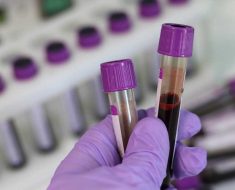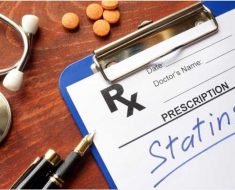Are holidaymakers fueling antibiotic resistance? Study warns travellers are taking them to treat diarrhoea – even though it can be treated without drugs
- Finnish researchers made the new findings after studying 316 participants
- Antibiotics have been doled out unnecessarily by medics for several years
- This has allowed harmless bacteria to evade them and become superbugs
- Antibiotic resistance is considered one of the biggest threats to humanity
6
View
comments
Holidaymakers who take antibiotics away with them to combat travellers’ diarrhoea may be fueling antibiotic resistance and the rapid rise of superbugs.
Researchers found travellers are three times more likely to use the drugs for their Delhi belly if they’ve packed them in their suitcase or hand luggage.
Antibiotics have been doled out unnecessarily by medics for years, fueling once harmless bacteria to become superbugs by teaching them how to evade the drugs.
Now resistance to the drugs is considered one of the biggest threats to humanity and has been cited as severe as terrorism and global warming.
The new study, by Finnish researchers, is the latest in a long-line of studies to try and discover what else is fueling untreatable superbugs.


Researchers found travellers are three times more likely to use the drugs if they’ve packed them in their suitcase or hand luggage
How was the study carried out?
Some 316 volunteers who had contracted travellers’ diarrhoea during their visits abroad were involved in the study.
Nearly 17 per cent of these – 56 participants – had packed stand-by antibiotics with them in their luggage, Helsinki University experts found.
In an analysis of the two groups, researchers uncovered a staggering difference in the percentage of people who used the drugs.
RELATED ARTICLES
- Previous
- 1
- Next
-
 Shrek, Despicable Me and Finding Nemo are all guilty of…
Shrek, Despicable Me and Finding Nemo are all guilty of…  Eating activated charcoal is NOT healthy and these are the 4…
Eating activated charcoal is NOT healthy and these are the 4…  How a fidget spinner almost killed a three-year-old boy:…
How a fidget spinner almost killed a three-year-old boy:…  Baby girl with a FOOTBALL-sized head: 7-month-old needs…
Baby girl with a FOOTBALL-sized head: 7-month-old needs…
Share this article
What did the researchers find?
More than a third of those who took antibiotics with them on holiday used them – compared to 11 per cent in the other group.
Use of the drug varied little for severe diarrhoea, which Finnish medical guidelines state antibiotics are acceptable to treat.
But those who took antibiotics with them were more likely to use them for mild and moderate diarrhoea, which can be treated without the drugs.
WHAT IS ANTIBIOTIC RESISTANCE?
Antibiotics have been doled out unnecessarily by GPs and hospital staff for decades, fueling once harmless bacteria to become superbugs.
The World Health Organization has previously warned if nothing is done the world was headed for a ‘post-antibiotic’ era.
It claimed common infections, such as chlamydia, will become killers without immediate answers to the growing crisis.
Bacteria can become drug resistant when people take incorrect doses of antibiotics, or they are given out unnecessarily.
Chief medical officer Dame Sally Davies claimed in 2016 that the threat of antibiotic resistance is as severe as terrorism.
Figures estimate that superbugs will kill ten million people each year by 2050, with patients succumbing to once harmless bugs.
Around 700,000 people already die yearly due to drug-resistant infections including tuberculosis (TB), HIV and malaria across the world.
Concerns have repeatedly been raised that medicine will be taken back to the ‘dark ages’ if antibiotics are rendered ineffective in the coming years.
In addition to existing drugs becoming less effective, there have only been one or two new antibiotics developed in the last 30 years.
In September, the World Health Organisation warned antibiotics are ‘running out’ as a report found a ‘serious lack’ of new drugs in the development pipeline.
Without antibiotics, caesarean sections, cancer treatments and hip replacements would also become incredibly ‘risky’, it was said at the time.
Professor Anu Kantele, lead researcher, said: ‘To cut down unnecessary antibiotic use, the underlying factors need to be explored.’
Crisis is ‘inevitable’
The study comes after an official report commissioned by the UK Government last week warned that the antibiotic resistance crisis is ‘inevitable’.
GPs have repeatedly been ordered to slash their use and stop prescribing them for common infections, including sore throats and earaches.
Around 700,000 people already die yearly due to drug-resistant infections including tuberculosis (TB), HIV and malaria across the world.
But some experts estimate superbugs will kill ten million people each year by 2050, with patients succumbing to once harmless infections.
The World Health Organization has previously warned if nothing is done the world was headed for a ‘post-antibiotic’ era.
Without antibiotics, Caesarean sections, cancer treatments and hip replacements would also become incredibly ‘risky’, it was said at the time.
And chief medical officer for England, Dame Sally Davies, claimed in 2016 that the threat of antibiotic resistance is as severe as terrorism.
Modern farming to blame?
Modern farming techniques have also been blamed for the emergence of antibiotic-resistant strains of E.coli, campylobacter and salmonella.
Common bugs that make animals sick are mutating to become resistant to the antibiotics that farms use to eradicate them.
Super gonorrhoea
The Helsinki study also comes after MailOnline broke the news that health officials issued a warning in March over a new strain of super gonorrhoea that is resistant to two crucial antibiotics – including a last-ditch resort.
In the first recorded case worldwide, an unidentified man in the UK – who was having regular sex with a woman back home – caught the STI from another woman during his travels to south east Asia earlier this year.
Public Health England revealed his gonorrhoea was resistant to ceftriaxone and azithromycin – the two drugs that the WHO recommends to be given to patients with the STI.
Source: Read Full Article





